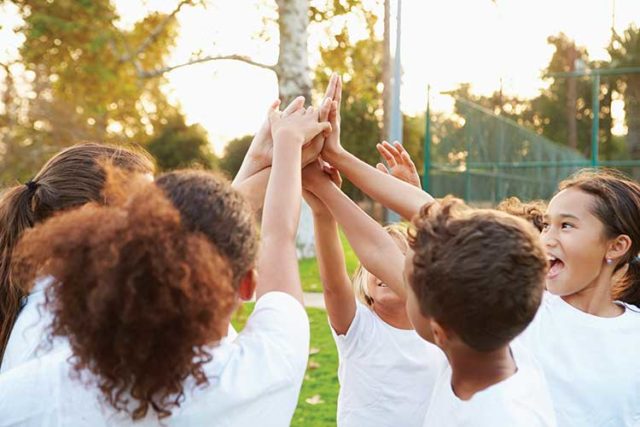We spent the last several weeks mesmerized by the winter Olympics. We watched every night together as a family, each of us having a favorite sport, event, or athlete we were cheering on. It struck me how hard it was to watch our favorites lose. Whether they missed a gate, lost control, or fell, the anguish and disappointment was heartbreaking, especially after all that training. In a matter of seconds something can go wrong. At times, the pressure placed on these athletes seemed almost too much. We quickly forget they are only human and when competing sometimes things happen in and out of an athlete’s control.
There are so many great lessons to be learned for parents and kids, especially those who love to compete. Here are a few I’d like to share:
HARD WORK
Here in the Bay Area, we don’t have to look far for athletes who epitomize hard work. Whether it is Steph Curry crushing another record, Klay Thompson’s return after a devastating injury, or the turbulent season for Jimmy G., these athletes prove hard work and determination are key to being one of the greats.
My two sons are playing basketball and I like to remind them Steph didn’t get that good at shooting three-pointers without a lot of practice. If you want to make a special team, set a new personal record, or hit home runs it takes practice, and a lot of it. Most of our children may not go on to be collegiate or professional athletes, but the value of a strong work ethic and lessons around commitment and teamwork will help them in their careers and beyond.
SPORTSMANSHIP
Good sportsmanship is something taught but also modeled. From a young age playing games such as Go Fish or Candyland, we can teach our children the importance of playing by the rules and being fair. Whether it is a board game or a sports game, we can teach them “if you win don’t rub it in, if you lose don’t make excuses,” and always end with a handshake. In our house, win or lose you look the other person in the eyes, shake hands, and say, “good game.”
As a coach for many youth teams, I always insisted on lining up and high-fiving the other team at the end of the game. I also always thanked the referee and strongly encouraged the kids to do the same. When I’m not the coach, I make sure my kids also thank the coach. Part of good sportsmanship is respecting your coaches and the officials and not arguing, regardless of whether you liked all the calls or decisions.
We also want to make sure our kids are showing respect for themselves, their teammates by being encouraging, and for the other team. Our kids are always listening and watching us, and they are paying attention to what we are yelling at the TV or at their games. Make sure to use these opportunities to model good sportsmanship and to be encouraging when cheering them on from sidelines.
WE CAN’T WIN THEM ALL
I grew up playing sports, and losing is hard. Watching your child lose can be just as difficult; however, the earlier they can learn the art of both winning and losing, the better it will serve them.
Losing, though it doesn’t make anyone feel good, can be a valuable opportunity to build resilience, confidence, motivation, and self-control. It also encourages humility, so when children do win, they can be respectful and more empathetic to others.
As parents, we can easily get caught up in the outcomes, and sometimes it is more beneficial to our children to focus on their effort. In our house, we don’t care how many goals you score or hits you have if you gave it your best and you had fun. This also helps children learn that their value is not tied to winning or losing — our love is unconditional and has nothing to do with the outcome of a game. Give them a hug after the game and point out something they did well.
There is so much to be gained from youth sports that goes way beyond a winning record. Ultimately, we want our children to enjoy the experience, and if we are doing our job as parents we hope they will learn and put into practice the values they learn from the experience. These values can be applied to all the highs and lows that life may bring and will stay with them for the rest of their lives. So as you spend another weekend racing from event to event, remember the gift you are giving them will last a lifetime.
Liz Farrell is the mother of three children and the founder of TechTalks, a consulting group to help schools and families have productive conversations around social media and technology. Email: [email protected]





